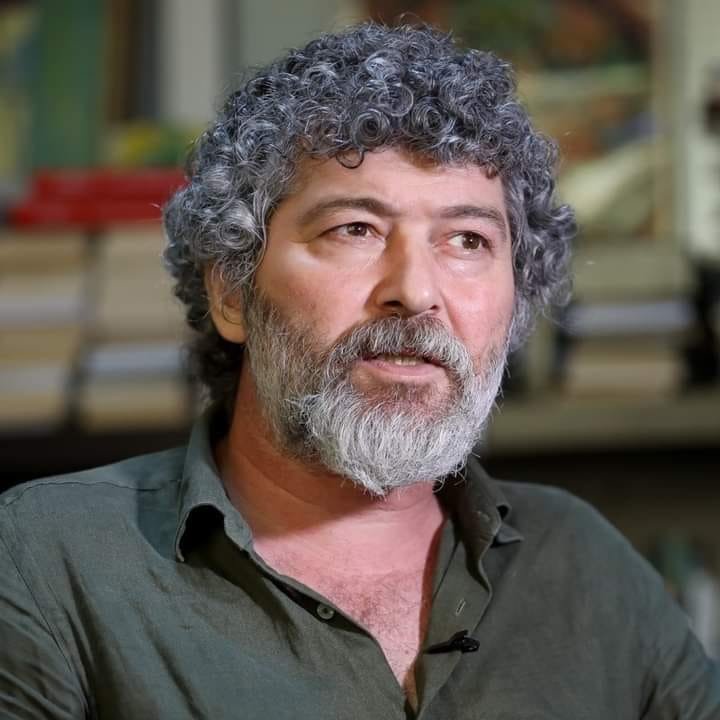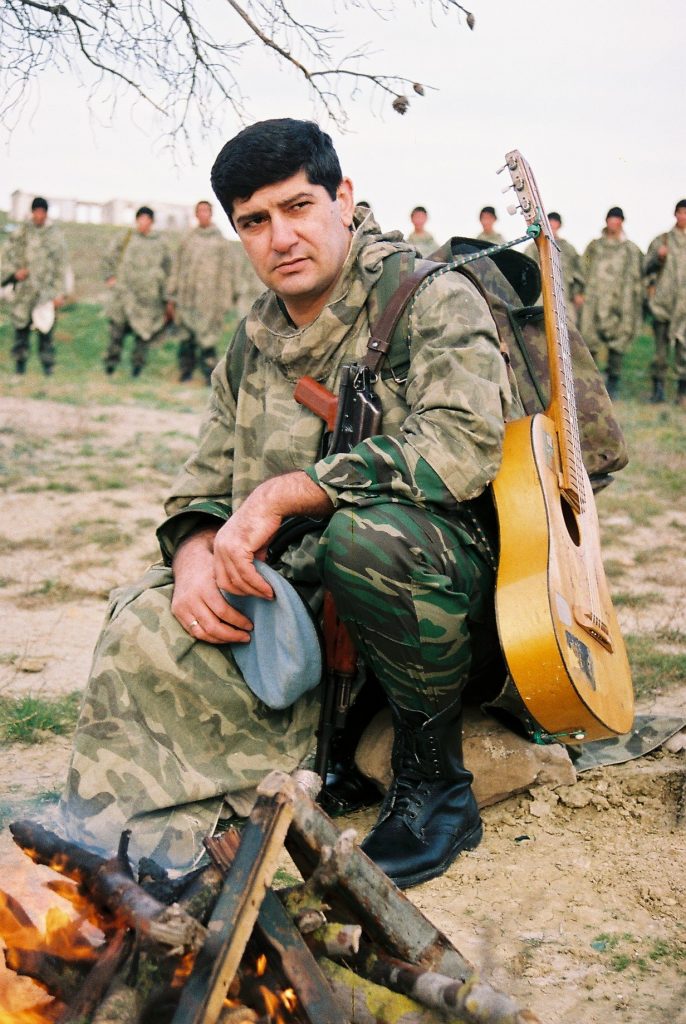Copyright law: lawlessness or protection in Azerbaijan?
Much like elsewhere in the world, theft of intellectual property is considered a crime in Azerbaijan and is regulated by law. There is a special government agency that controls this area. But in fact, copyright theft is almost never punished by law, and protection of intellectual property is very weak.
JAMnews spoke to experts to learn more about the current state of copyright protection in Azerbaijan.
Fragmentation in the field of copyright protection

Shahbaz Khuduoglu, head of the Qanun publishing house said that there is great fragmentation in the field of copyright in Azerbaijan.
“Actually, nothing is regulated. Thieves quite calmly print any book, distribute it on social media. By law, this is a crime but it is never prosecuted. Copyright infringement is not taken seriously. I have repeatedly appealed to the appropriate authorities but nothing has come of it”, Khuduoglu told JAMnews.
What does the law say?
The Law of the Republic of Azerbaijan on copyright and related rights regulates the creation and usage of scientific and literary works, as well as works of art, performances, audio recordings, and on-air and cable TV broadcasts.
The 25th article of this law states that the copyright begins at the time of the creation of a work and remains in force throughout the life of the author as well as 70 years after their death.
The copyright law also sets out the civil, administrative, and criminal sanctions for violations of the specified copyright or related rights.
Government agency responsible for copyright protection
Currently, the main state body responsible for copyright protection in Azerbaijan is the Intellectual Property Agency, established in July 2018 by a presidential decree which merged the Copyright Agency and the Center for Patents and Trademarks.
A report posted on the agency’s official website states that as per World Economic Forum 2019 Global Competitiveness Index, Azerbaijan ranks 37th among 141 countries for the protection of property rights, and 30th for intellectual property.
It is also noted that Azerbaijan’s positions in the Global Competitiveness Index on intellectual property protection consistently increased between 2015 – 2019.
The agency also emphasizes that Azerbaijan’s rating has increased in terms of patent applications and in 2018 the country rose by three positions in the Innovation Index related to intellectual property and ranked 68th in the world.
There is no mechanism to apply the law
But Shahbaz Khuduoglu believes that the Intellectual Property Agency has no real mechanism to ensure the protection of property rights.
“Let’s say some publishing house has translated or published a book, the copyright holder of which is us. In this case, we contact the publisher directly and they will probably apologize, but carry on doing the same thing. The agency has neither the desire nor the legal means to punish pirate publishers. In other words, issues like that are regulated by word of honor”, says Khuduoglu.

There are also those who positively assess the work of the Intellectual Property Rights Agency in terms of copyright protection. For example, the famous military correspondent, author, and performer of patriotic songs Shamistan Alizamanli appealed to the agency in 2019 to register all his works. As he noted in an interview with JAMnews, he felt the benefits of this.
“Not so long ago one of the performers, whose name I don’t want to mention, performed my song ‘Turan Eller’ and indicated himself as the author. We turned to this person with the registration documents, and he apologized without any discussion. I restored my rights very easily. Of course, such registration, provided by law, facilitates the protection of copyright”, Alizamanli said.
The story of one song
Among other famous persons who applied to the Intellectual Property Agency to register their works in 2019 was the composer Eldar Mansurov. His name is one of the first that comes to mind on the subject of copyright protection in Azerbaijan.
The song ‘Bayatylar’, written by Eldar Mansurov in 1988, based on the lyrics of Vahid Aziz, was first performed in 1989 by the popular singer Brilyant Dadasheva. Since then, it has been performed by other artists in almost every corner of the world in complete violation of copyright.

It all began when in 1990 the Melodiya recording company released a disc with this song and distributed it in the USSR.
A year later, the band Ashgabat from Turkmenistan, with the permission of the author, performed this song, but in 1993 on their album, they indicated Eldar Mansurov as a Turkmen composer. After that, Ashgabat released an album in Germany and without notifying Eldar Mansurov, sold the rights to this song to Real World Records under the leadership of Peter Gabriel. In 2002, the same song performed by Ashgabat appeared as a soundtrack in the movie ‘Promises’, which told a story about the Palestinian-Israeli war.
Over the years, the song was performed by different artists under different names: the Russian singer Reno performed it under the title ‘Hello’, the famous Turkish singer Sezen Aksu called it ‘Zalim’, and the Greek singer Keti Garbi performed the song under the name ‘Esena Mono’. None of them indicated the author of the song. The Brazilian jazz orchestra Camara performed this song under the original name “Bayatylar”, Eldar Mansurov was named as the author, but again as a Turkmen composer.
In 2006, Azerbaijani pop star Aygun Kazimova sang this song, and in all her foreign tours introduced it as a work of Azerbaijani composer Eldar Mansurov.
In 2009, Romanian singer Edward Maia performed the song “Bayatilar” calling ‘Stereo Love’, and 10 years later, upon arriving in Azerbaijan, he signed an agreement with Eldar Mansurov on the protection of copyright for this work.
Along with his other compositions, Eldar Mansurov registered “Bayatylar” with the Agency for Intellectual Property.
The main problem is the lack of awareness
Shahbaz Khuduoglu believes that the presence of an agency and legislation on copyright protection in the country is in itself a positive factor, but this is not a comprehensive solution to the problem. In his opinion, the main problem in this area is a lack of awareness.
“People are still in Soviet dreams. If it’s a book, then it can be stolen and not considered theft. This misconception must be radically changed and I think the only way to do it to hold a public discussion. In most cases, the law works, there is even a committee overseeing it but people keep on with their old habits. They [the Agency for Intellectual Property] need to explain all this in an easy way. Pirates not only copy physical books but also electronic ones and distribute them on major social media platforms. Sometimes the disseminators consider this act educational but if they had even the slightest idea about copyright and intellectual property, they would not do it, I am sure”.
Experiences of an Azerbaijani writer
The well-known Azerbaijani writer Gunel Movlud, now living in Norway, has experienced a problem with the likelihood of the distribution in Azerbaijan of pirated copies of her new novel, ‘Camp’. Movlud said that the design of some copies in her possession were different from the original.

Cover of the novel “Camp” by writer Gunel Movlud
“In addition, the person distributing the books via the Internet was also selling the novel ‘Camp’, although we did not give him the books for sale. When I wrote to him about this, he replied that he buys books in stores and resells them. I didn’t go to court, because I had no evidence to support my case”, Gunel Movlud told JAMnews.
After ‘Camp’ was printed, the writer received information about the distribution of a PDF version of her book in some book groups on social networks. However, in this case, realizing that they were breaking the law, the group administrators removed them. Despite this, Gunel Movlud notes that if she hears about the distribution of the book in such an electronic format without respecting copyright reoccurring, she does not intend to fight this phenomenon.
“I looked at several platforms for selling books in an online format and tried to place a PDF version there. But the percentage of sales they demanded is so high that I thought: let people contact me directly and buy books from me, this is beneficial to all parties. Of course, in this case, the likelihood of spreading the electronic format of the book increases. I thought that I would rather let my compatriots read the book for free than pay millionaire companies to sell it”, said Movlud.
She also shared with us her Norwegian experience in distributing literary works. In this country, after a book is published, the writer receives 15% of the profit from the sale of each copy, the author is given 25 copies of their book for advertising, and if the book is translated into other languages, the publisher transfers 5% of the profit from the sale of the work to the author.
“In Norway, the copyright for a translation, a poem, or any other kind of creativity always remains with the author. For example, if a publisher included your poems in some kind of anthology, and paid you a fee for this, they do not have a right to use them in any other publications. If your poems are also included in the brochure advertising the published anthology, you will be entitled to an additional fee”.
As for the minimum amount of royalties paid to an author, it depends on factors such as the popularity of the author themself, the success of the book, and the financial capabilities of the publishing house.
Gunel Movlud says that the main thing about Norway is that the writer does not have to worry about copyright protection since all of this work is done by the lawyers of the country’s writers’ union:
“This is not only the case for copyright infringement. Violation of any rights of writers, including sexual violence, harassment – all of these cases are dealt with by lawyers of the writers’ union”.



















